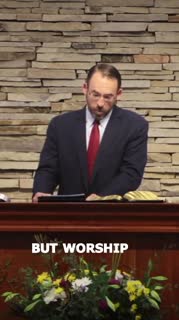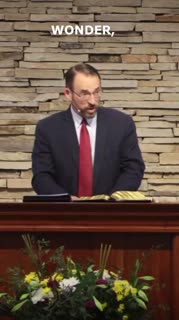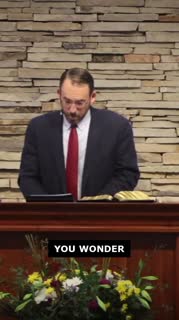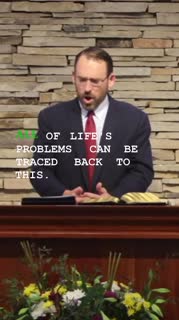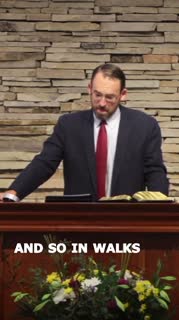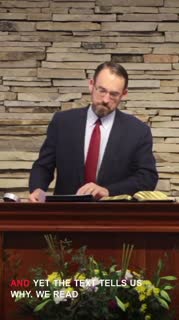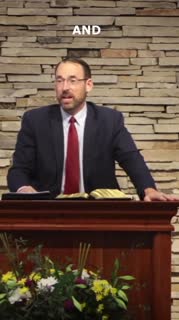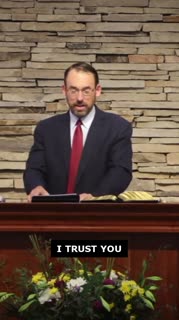True Worship: Purity, Compassion, and Childlike Faith
Devotional
Sermon Summary
Bible Study Guide
Sermon Clips
1. "But worship wars, as you well know. Are hardly a new problem for God's people. The next three chapters here in Matthew 21, 22, and 23 are all about Jesus clashing with the religious leaders about worship, about authority, and ultimately about his own identity. If you remember back in verse 10 where we left off last time, a couple of weeks ago, after his triumphal entry on this original Palm Sunday and his arrival into Jerusalem, the question that rang out and still rings out today, Matthew 21, verse 10, who is this? Who is he? Who do you say that I am?" [00:01:23] (43 seconds)
3. "I wonder, friend, if you're here this morning, do you have a category for this side of Jesus? Do you have a concept? For the full biblical portrait of the complete Christ of the Bible. Not just gentle and loving, but also righteously angry and furiously intolerant with a holy jealousy against corrupt worship and religious hypocrisy. Do you understand, friends? If you've come here this morning as a so-called Christian, but a pretender, a hypocrite, living a double life, if you were blatantly, willfully sinning this morning, looking at porn, or who knows what, and you've come here, you would be safer swimming in an outdoor pool in a lightning storm than to be here now doing this." [00:08:03] (52 seconds)
4. "You wonder then, what's he trying to tell us? When not once, not only at the outset of his ministry, but twice, his righteous fury, his holy outrage, cleans the temple, purifies God's house, both times at Passover, bookending his entire ministry, all the ways for Jesus to begin and end his public ministry. Why, why would he do it in such a disruptive and violent and severe and offensive fashion?" [00:09:00] (30 seconds)
6. "All of life's problems can be traced back to this. A worship disorder, a disease of the soul, a distracted heart, a idolatrous heart, a failure to fear God as we are, and we are not. A.W. Tozer puts it well in that superb book of his, Knowledge of the Holy. Tozer writes, with our loss of the sense of majesty has come the further loss of religious awe and consciousness of the divine presence. We have lost our spirit of worship and our ability to withdraw inwardly to meet God in adoring silence." [00:11:24] (37 seconds)
7. "And so in walks the Lion of Judah, and everyone hears him roar. Verse 12. He drives out those who are buying, selling to them, overturns the tables of the money changers. The seats of those selling doves, as one writer describes. The noise of this court of Gentiles before Jesus stepped in would have been repulsive. The merchants shouting from one stall to another, competing for customers." [00:22:11] (26 seconds)
8. "And yet the text tells us why. We read in the Gospels, Jesus' temple cleansing encapsulates his entire ministry because it displays his kingship. It shows he is Messiah. The whole point of Matthew's Gospel. In this one act, Jesus demonstrates his authority to purge Israel's worship and to replace it with something better, with a new temple with himself." [00:09:49] (27 seconds)
9. "And Jesus quotes from a psalm that's all about the dignity of humanity every human life, and we know that begins at conception. And the irony is back in Jeremiah 7, the den of robbers text in verse 13. Go read that because it's one of the very places where they were rebuked because they kept offering up their iniquity. Infants on the altars of Molech." [00:50:04] (26 seconds)
10. "I trust you have noticed, haven't you, in our modern day of worldly brainwashing and a secular education and godless ideologies, it takes a whole lot of indoctrination to turn a simple child into an atheist. And an evolutionist. To replace that little trusting innocence with arrogant mocking and scoffing and skepticism. Not like John Bunyan who knew better. He writes, little ones often know best how to come to Christ for they come as they are with mouths full of praise needing no further reason but his goodness." [00:52:47] (36 seconds)
Ask a question about this sermon
3. "I wonder, friend, if you're here this morning, do you have a category for this side of Jesus? Do you have a concept? For the full biblical portrait of the complete Christ of the Bible. Not just gentle and loving, but also righteously angry and furiously intolerant with a holy jealousy against corrupt worship and religious hypocrisy. Do you understand, friends? If you've come here this morning as a so-called Christian, but a pretender, a hypocrite, living a double life, if you were blatantly, willfully sinning this morning, looking at porn, or who knows what, and you've come here, you would be safer swimming in an outdoor pool in a lightning storm than to be here now doing this." [00:08:03] (52 seconds)
4. "You wonder then, what's he trying to tell us? When not once, not only at the outset of his ministry, but twice, his righteous fury, his holy outrage, cleans the temple, purifies God's house, both times at Passover, bookending his entire ministry, all the ways for Jesus to begin and end his public ministry. Why, why would he do it in such a disruptive and violent and severe and offensive fashion?" [00:09:00] (30 seconds)
6. "All of life's problems can be traced back to this. A worship disorder, a disease of the soul, a distracted heart, a idolatrous heart, a failure to fear God as we are, and we are not. A.W. Tozer puts it well in that superb book of his, Knowledge of the Holy. Tozer writes, with our loss of the sense of majesty has come the further loss of religious awe and consciousness of the divine presence. We have lost our spirit of worship and our ability to withdraw inwardly to meet God in adoring silence." [00:11:24] (37 seconds)
7. "And so in walks the Lion of Judah, and everyone hears him roar. Verse 12. He drives out those who are buying, selling to them, overturns the tables of the money changers. The seats of those selling doves, as one writer describes. The noise of this court of Gentiles before Jesus stepped in would have been repulsive. The merchants shouting from one stall to another, competing for customers." [00:22:11] (26 seconds)
8. "And yet the text tells us why. We read in the Gospels, Jesus' temple cleansing encapsulates his entire ministry because it displays his kingship. It shows he is Messiah. The whole point of Matthew's Gospel. In this one act, Jesus demonstrates his authority to purge Israel's worship and to replace it with something better, with a new temple with himself." [00:09:49] (27 seconds)
9. "And Jesus quotes from a psalm that's all about the dignity of humanity every human life, and we know that begins at conception. And the irony is back in Jeremiah 7, the den of robbers text in verse 13. Go read that because it's one of the very places where they were rebuked because they kept offering up their iniquity. Infants on the altars of Molech." [00:50:04] (26 seconds)
10. "I trust you have noticed, haven't you, in our modern day of worldly brainwashing and a secular education and godless ideologies, it takes a whole lot of indoctrination to turn a simple child into an atheist. And an evolutionist. To replace that little trusting innocence with arrogant mocking and scoffing and skepticism. Not like John Bunyan who knew better. He writes, little ones often know best how to come to Christ for they come as they are with mouths full of praise needing no further reason but his goodness." [00:52:47] (36 seconds)
